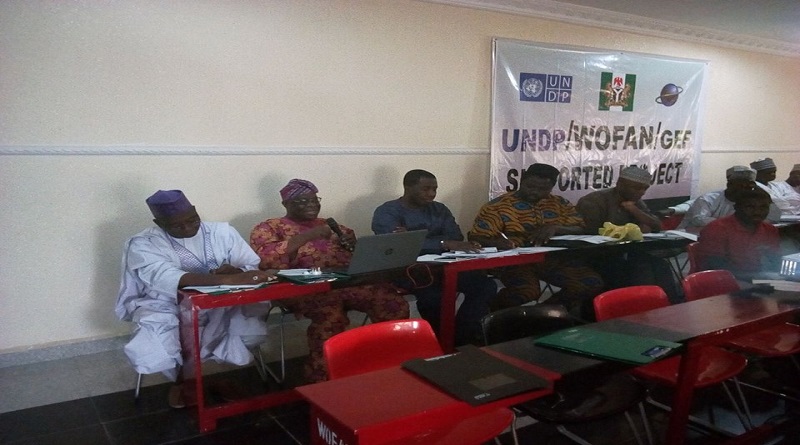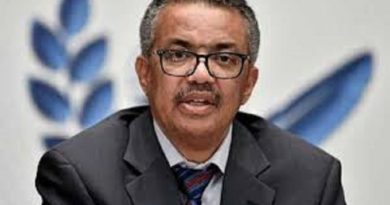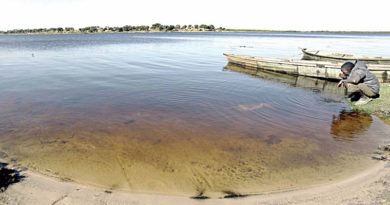Why UNDP, GEF food security, ecosystem resilience project is important to Nigeria
Ahead of the official flag-off later this month of the five-year Integrated Landscape Management to Enhance Food Security and Ecosystem Resilience in Nigeria project writes KAYODE ABOYEJI on the importance of the project to fostering food sustainability and nutrition in the country.
The conflicts in the northern agro-ecological zones (AEZs), where most of the grains are produced; flat crops yields over the past decades; changing and uncertain climate; shrinking farming workforce; poor infrastructure and the rapidly growing population among others are some of the reasons that have been adduced as divers of food insecurity in Nigeria and malnutrition.
Besides, the over dependence on oil revenue for food imports which unfortunately as decline in the recent time calls for the need to offset the declining food production by vast increase in-country food production methods.
It was against this background that the United Nations Development Programme (UNDP), the Global Environment Facility (GEF), Women Farmers Advancement Network (WOFAN) and the Federal Ministry of Environment conceived the idea of integrated landscape management to enhance food security and ecosystem resilience project.
Essentially, the objective of the project is to enhance productivity and promote sustainability and resilience of Nigeria’s agricultural production systems for improved national food security.
Already, 70 communities that spreads across thirteen Local Government Areas including Dutsina, Musawa, Kabo, Gwarzo, Jahun, Katungo, Balanga, Yola South, Furore, Akwanga, Kokona, Otukpo and Ukum have been selected as project site in the seven participating pilot states of Kastina, Kano, Gombe, Adamawa, Nasarawa Jigawa and Benue.
The project that has identified some barriers to sustainable and resilient food security in Nigeria will offer solutions to enhance the policy and institutional enabling environment for achieving improved food security and integrate sustainable, resilient and inclusive value-chain approaches; scale up sustainable land and water management (SLWM) and climate-and water-smart agricultural (CSA/WaSA) practices that will ensure both environmental and social development benefits at farm and landscape level; reduce gender disparities in agricultural production through women-specific economic empowerment schemes, scale up youth involvement in agriculture using IITA Youth Agricpreneurs scheme and improve monitoring and assessment.
The Project Elements prepared by the Consultant, Prof. Emmanuel Oladipo of University of Lagos, a copy of which was made available to Ecogreennews revealed that the project is generally consistent with national policies and strategies of the government in the Agricultural Transformation Agenda which include agriculture is business; main urban areas in the country supplied with food made in Nigeria; smallholder farmers with long term rights to farm their lands, armed with knowledge on how to farm their land sustainably, practicing soil and water conservation; Nigerian researchers breeding a cassava varieties that are resistant to climate change and gives higher yields; livestock that is immune to some of the new epidemics caused by extreme weather conditions; and proper extension services supporting small farmers to decide what best to grow on their lands, where extreme rains and draught are a constant threat.
Similarly, it is also consistent with Nigeria Vision 20:2020, Economic Transformation Blueprint which envisions a large, strong, diversified, sustainable and competitive economy that effectively harnesses the talents and energies of its people and responsibly exploits its natural endowments to guarantee a high standard of living and quality of life to its citizens and recognize a changing climate as a threat to sustainable growth and sees it as a potential driver of “damaging and irrecoverable effects on infrastructure, food production and water supplies, in addition to precipitating natural resource conflicts.” The recognition is an important first step towards the imperative for the pursuit of a development path that will develop resilient food systems for sustainable development of the country.
Not only that, the project is consistent with the National Policies on Agriculture, Climate Change and Environment; the National Adaptation Strategy and Plan of Action on Climate Change in Nigeria (NASPA-CCN) and the National Agriculture Resilience Framework (NARF) that seek improvement of agro-meteorological services; promotion of changes in agricultural practices; agricultural diversification; promotion of changes in agricultural water management; risk management and agricultural insurance; sustainable land management, and social protection programs.
In his remark at a two-day inception workshop on the project held in Kano, Kano State early December 2017, the UNDP Focal Person on Environment, Mr. Muyiwa Odele stated that the importance of the project cannot be overemphasized as it is rooted in the national priority of the Federal Government.
He went further, “There is no better time to start talking of food security than now considering the decline in oil prices worldwide and many countries are now phasing out dependence on oil.
“The population of the country is increasing, therefore, we hope to strengthen the food chain system in the country against climate change as well as work with both the state and federal levels in eventually feeding the country and beyond conveniently,” he added.
Prof. Emmanuel Oladipo stated that the project is consistent with what the Federal Government is already geared toward in developing agriculture.
He maintained that there is really no need to import food for the country once agricultural potentials are tapped, a goal of the food security and ecosystem resilience project.
According to him, the project is poised to enhance productivity and promote sustainability and Resilience of Nigeria’s agricultural production systems for improved national food security in the face of dwindling oil revenues in the country and beyond.
Also speaking, Deputy Director, Agriculture Mechanisation, Federal Ministry of Agriculture and Rural Development, Abdullahi Abubakar, an engineer, assured that the project has come to stay and they will do everything possible to sustain it.
Stressing further, Abubakar noted that women will greatly benefit in the project as they are deeply involved in agricultural processing which is a target.
In her remark, Founder and Executive Director, Women Farmers Advancement Network (WOFAN), Hajia Salamatu Garuba who extolled the project for being gender sensitive stated that it will make it a reality for women to come together and use agriculture as a livelihood.
Hajia Garuba who stated that Nutrition and adaptation to climate change are big components of the project expressed the hope that it will groom a lot of youth and women by attracting them to agriculture as a source of livelihood and discourage rural to city influx.
A recent report by the Nigeria Extractive Industries Transparency Initiative (NEITI) disclosed that Nigeria’s oil and gas revenues plunged from $54.5 billion in 2014 to $24.8 billion in 2015, while the country’s oil production fell from 798 million barrels in 2014 to 776 million barrels in 2015.
The report shows that Nigeria suffered a 54.6% decline in oil revenues but only a slight 2.7% fall in oil production. “This was due to drastic reduction in the unit price of crude oil in the global market,” states the report. It will be recalled that the yearly average price of crude oil per barrel tumbled from $101.91 in 2014 to $52.16 in 2015.
In 2012, about $11 billion was spent on food imports despite its abundance of arable land resources in the country.




